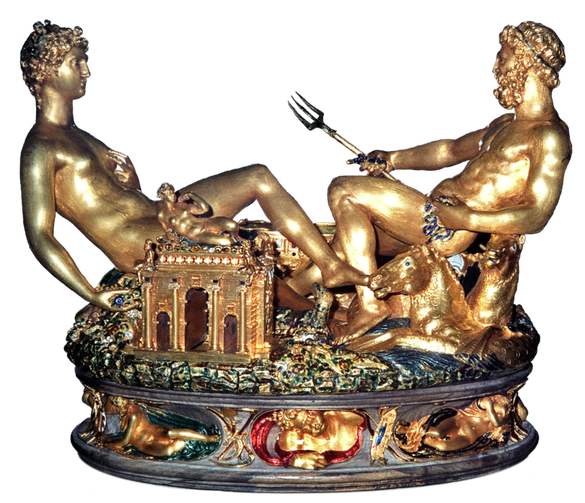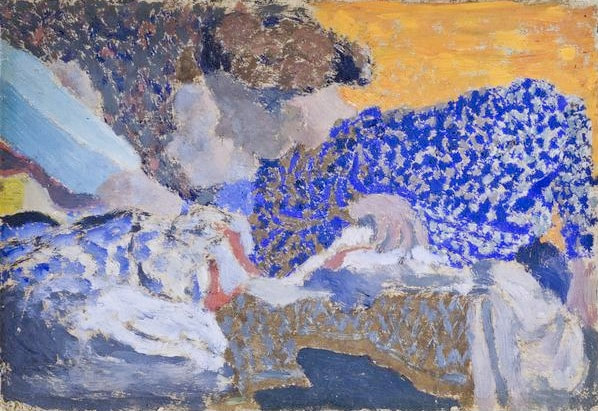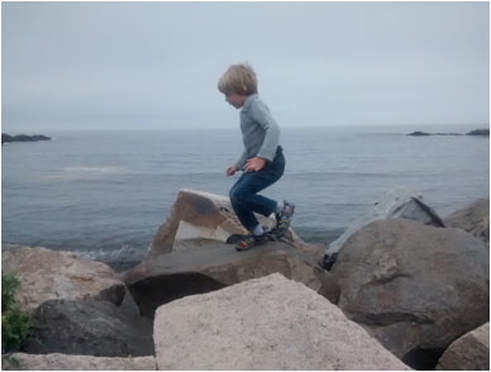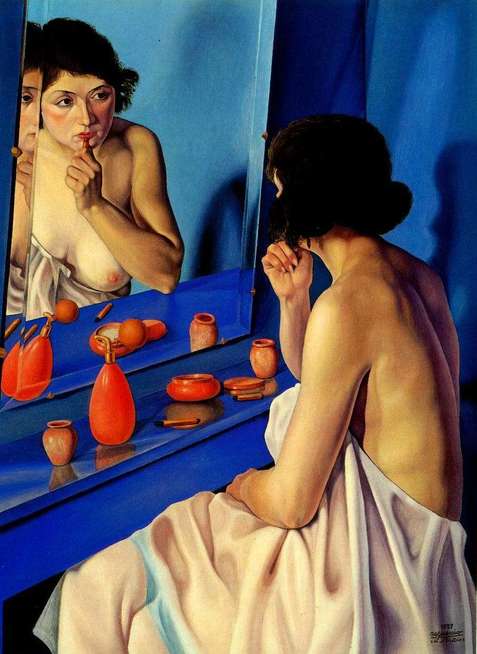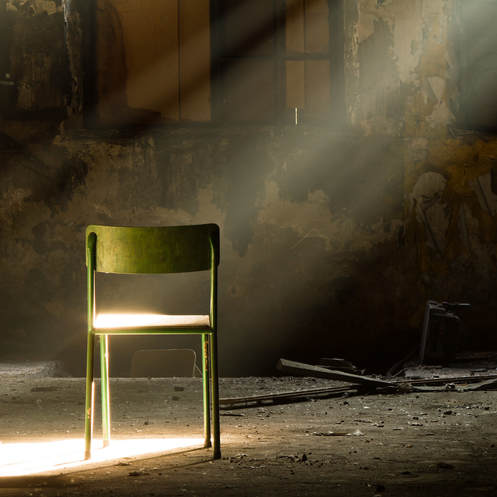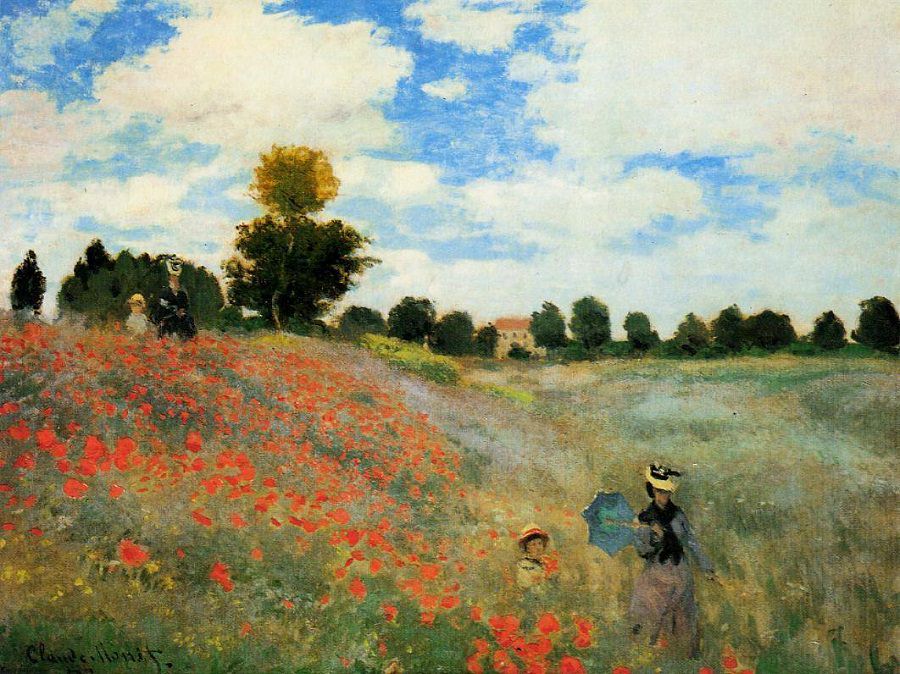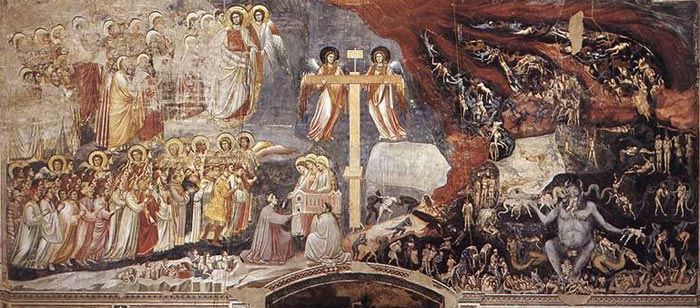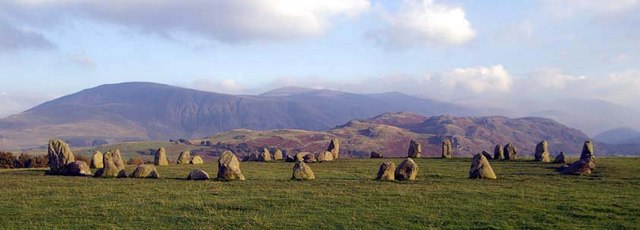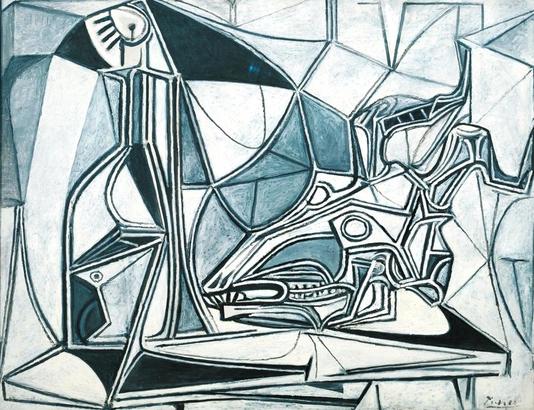|
Salt Cellar
Lounging lord and lady they are today Makers of their own realms and in-between. The drama of lover and libertine, Locked in passions draw, its hold, its replay, Dazzles the audience with golden touch Of Midas, the king of all our metals. Earth, who I chiseled into place, settles Her accounts, peppercorns for such and such. Sea creatures toss up their ready sovereign To direct the tempests with trident wand. He metes out his hoard of riches in salt. Together the sentient world they govern, As inlets and ridges entangle a bond That pleasures them both. Our lives they exalt. Dennis Daly Dennis Daly lives in Salem MA. He has published six books of poetry and poetic translations. His 7th book, The Devil's Artisan, Sonnets from the Autobiography of Benvenuto Cellini is now seeking a publisher.. His blog site Weights and Measures is dennisfdaly.blogspot.com.
0 Comments
The Scream
If you let go of your Halloween peanut and candy corn coated breath, it will become a ghost in the city of Odessa. Not like that cheery chubby Casper cartoon or those grotesque movie ghouls. Rather a spirit of relief floating in an October chill. Is this how we make the world small? Through breath and air? Maybe the redwoods in California will smell the sweet aroma of your release. If you dress yourself in a coat of curiosity while driving around these overcrowded concrete streets, you will see the city’s dress is summer green with a hem of frightened yellow, drab brown and a collar of panicked orange. Munch mimics fall with the same hues in Der Schrei der Natur. This contorted face he sketched in his whirlwind of colours is no more terrifying than my dreams rummaging through the darkness, fishing for stars. Is this what fear looks like, a distorted jaw and murky shadows? If so, does a violet scream joy? If we wait until tomorrow to remove our masks, truth will follow us into November. You will see beneath this flesh I am a pole. Your words lean against everything you once feared. Loretta Diane Walker This poem was first published in Ilya's Honey Literary Journal. Loretta Diane Walker, a multiple Pushcart Nominee, and Best of the Net Nominee, won the 2016 Phyllis Wheatley Book Award for poetry, for her collection, In This House (Bluelight Press). Loretta was named “Statesman in the Arts” by the Heritage Council of Odessa. Her work has appeared in various literary journals and anthologies including, River of Earth and Sky, Her Texas, and Concho River Review. She has published four collections of poetry. Her most recent collection is Desert Light, Lamar University Press. Her manuscript Word Ghetto won the 2011 Bluelight Press Book Award. Naomi Shihab Nye states, “Loretta Diane Walker writes with compassionate wisdom and insight—her poems restore humanity.” Two Seamstresses in the Workroom
"I wonder: are my limitations ours? What can my hands produce which yours cannot? These shears - a polished steel interface between me and the cloth - could you not use their intersecting contours to trace the same patterns I find carefully wrought in chalk along this silken organdy, its plain weave balanced by complexity of printed roses, petals, green-veined leaves falling away along a future seam?" She answered: "When all patterns interfuse their borders into one, roses redeem all our divisions, and the eye perceives no separation, even when the stem turns back upon itself beneath the hem, our vision follows, crafting it complete. And so my hands are yours, and yours are mine and all these roses, ruby or chartreuse, repeat what they conceal: curve or line, the flowing border or the gathered pleat, until blossoms, transformed, become earthstars. W.F. Lantry W.F. Lantry’s poetry collections are The Terraced Mountain (Little Red Tree 2015), The Structure of Desire (Little Red Tree 2012), winner of a 2013 Nautilus Award in Poetry, The Language of Birds (2011). He received his PhD in Creative Writing from the University of Houston. Honors include the National Hackney Literary Award in Poetry, Patricia Goedicke Prize, Crucible Editors' Prize, Lindberg Foundation International Poetry for Peace Prize (Israel), the Paris Lake Poetry Prize and Potomac Review Prize. His work appears widely online and in print. He currently works in Washington, DC. and is editor of Peacock Journal. For Roland Barthes and Crockett Johnson
The punctum is his red toe Not August in Maine Not his blond hair turning wheatish in the back Or the frowsy sweep of the home haircut Not the jump Or the big weird rocks Ok maybe the rocks play a role But not the one we thought Not his age, 5 Or time passing, now seven months Here in Perkins Cove the garbage cans sport aspirational messages Here are ice cream cones blueberry infused Wearing his sister’s old sweater Maybe the punctum is his ear Maybe his tiny, delicate profile Not the cowlick cut by his father Chickening up But the gentle closing of thumb and forefinger on his right hand Unconscious signifier of balance and grace Picking up the ocean like a curtain or a blanket Drawing to its fold Allison Moore Allison Moore teaches contemporary art and photo history at the University of South Florida. Her criticism has been published in Artforum, among other places, and her scholarly book on Malian photography is forthcoming with Duke University Press. A Moment at the Mirror
That moment when we separate: as form continues with its sinews, mind diminues to within while pondering what may be fate until reminded to begin once more to congregate. That other, who looks out at me, so indifferent, does she see uncertainty beneath my smile, realizing all the while this makeup hides so much below, those essences which must not show when on the street I chance to meet someone that I might know. And did she notice, moments past, I hesitated, paused to wonder-- would my guise be put asunder at the moment that’s my last? Tonight, perchance, that solemn dance; my will succeeded or surpassed. This breast and neighbor pass the test which carries them among the best of youth and those still at their peak, although an aging gent might seek a matron who can patronize, who’ll lie, in spite of every lie, who’ll realize that wealth and power, name and fame, a healthy dower-- not her flower—keeps her in their clique. But someday might I find a lump which terrorizes, while their firmness mesmerizes young and old, those very bold who might apply, or even those still very shy who need my wile and loving smile, not aware that all the while darkness keeps my heart at bay, controlling all I do and say. Yet flattery o’er many years may flatten chests upon which rests the privilege gained from these amours, whether one is truly yours or just another tête-à-tête, a chance to fête before the fate of aging causes to abate those passioned nights and daily fights, revulsions and delights. I noticed, looking back at her, my pondering did not deter the tasks which render her expressions, hiding any indiscretions, beautiful, full dutiful to those who seek a face which pleases and appeases, never dark or bleak. Anointing face with many hues of red, perhaps a touch of blues around the eyes, a fair disguise, and euphemistic beauty mark, a mole (so droll it seems a lark); some reflexed, some with practiced skills-- for many years they’ve been the shills of beauty’s commerce wont today. Once makeup’s on, I’ll start my day. Ken Gosse Ken Gosse writes poetry using simple language with traditional metre and rhyme, often filled with whimsy and humor. First published in The First Literary Review–East, November 2016, his poems are also in The Offbeat, Pure Slush, Parody, The Ekphrastic Review, and other publications. Raised in the Chicago suburbs, he and his wife have lived in Arizona over twenty years, always with a herd of cats and dogs underfoot. Marvelous Realism Not all magic drains into the pool of exploitation. She sees a remnant, to bring forth through mysterious creams, powders, brushes, that help her forget skin-deep and, focus on what the mirror doesn't reflect. Tim Philippart In 2015, Tim Philippart sold his gymnasium equipment sales and service business. He started writing poetry, short fiction, non-fiction and ghost blogs. Since then, over 60 of his pieces have seen daylight in publications like Gravel, Magnolia Review, Saltfront, Chicago Literati, and Third Wednesday. Chances are, if you are reading this bio, you are about to encounter something Tim wrote. Feel free to email him (timphilippart@yahoo.com) with questions or comments. If, perchance, you have answers he always enjoys receiving those too. After Woman in the Mirror by Cagnaccio Di San Pietro Alone At your vanity in the blue room Soft and naked as a mollusk In its pearl walled shell Your rosy flesh a reflection Of your red rouge pots- Creams and unguents Ordered before you Like the words Of an alchemist's equation You lean forward As if to protect your own Image in the glass As yet unpolished Unrefined unready To bear the touch Of any man's Chill evaluation- Fractured The figure in the mirror Watches the door Fearful of intrusion And hides in the border Another unacknowledged Queen of sorrows Mary McCarthy Mary McCarthy: "I have always been a writer, but spent most of my working life as a Registered Nurse. My work has appeared in many print and on line journals, including 3Elements, Praxis, Verse/Virtual, and Third Wednesday. I have an electronic chapbook Things I Was Told Not to Think About available as a free download from Praxis magazine online." Blue Reflection Why would he make her paint herself and leave so disarrayed the shelf on which he put her arm to rest in pose as if by thought possessed... ...of scent he had her atomize as aura he could improvise to layer, in transparent veils, the earthiness that art entails... ...by tease of beauty both exposed and yet still left to be disclosed to yearning and bewildered eyes left solely to their mere surmise... ...of all that he had fully seen and so admired to see her preen? Portly Bard Portly Bard: "Old man. Ekphrasis fan." The Woman in the Mirror She struggles to the parlor, sits half-naked in front of the vanity with a clinical look that realism always renders. Her eyes are heavy with fatigue—she was sleeping on the floor with the others, wine bottles, poker cards and cigarettes scattered among them—mascara, eye shadow, and rouge attempt to cover up regret and the lingering loneliness after the orgy. She slips on fresh lipstick, the color of her nipples still perked on her ample breasts, supple, waiting for her John to take her away. John C. Mannone John C. Mannone has work in Blue Fifth Review, Poetry South, Peacock Journal,Baltimore Review, Windhover and others. He won the Jean Ritchie Fellowship (2017) in Appalachian literature and served as the contest’s celebrity judge for the National Federation of State Poetry Societies (2018). His third collection is Flux Lines (Celtic Cat, 2018). He edits poetry for Abyss & Apex and other journals. he’s a retired physics professor living in east Tennessee.http://jcmannone.wordpress.com Endings He didn’t even bother to shut that front door quietly. Slammed it shut. I followed him with my eyes as he walked down that dark and wet street, his coat collar turned up against droplets from the skeletal trees. Mirror, mirror… the eyes were clear once, once there was not one line around the mouth. My breasts are still where they should be, my arms still solid. But I have seen him with her. One night, near Seven-Eleven. She was so young. And his paunch hung over his belted trousers. How will loneliness feel? Once upon a time, we loved each other. Rose Mary Boehm A German-born UK national, Rose Mary Boehm lives and works in Lima, Peru. Author of two novels and three poetry collections, her work has been widely published in US poetry journals (online and print). Act II Scene VI Line 138 Shakespeare wrote--All the world’s a stage, and all the men and women merely players--centuries ago. Imagine the increased depth of meaning had he given that speech to a Jacqueline instead of a Jacques. But there you have it—patriarchal platitudes. Metaphor masquerading as truth. We are not considered equal in that phrase. Men might be players, but we are the game pieces. Fondled. Flipped. Rarely respected. Or returned with care. Every day I sit with paint, powder, and perfume—preparing for a gauntlet of judgment on the world stage. A better comparison might be that I prepare to stand trial every day in the court of public opinion—where the jury catcalls, the judge leers, the lawyers make baseless accusations, and the gallery tries to pretend everything is normal. My war paint mask must be attractive, but not desirable; my odour pleasant, but not intoxicating; my dress fashionable, but not form-fitting if I am to hit all my marks, deliver my lines, and arrive home after five unassailed. Mirror, mirror, ...I am exhausted in the act of merely existing. Jordan Trethewey Jordan Trethewey is a writer and editor living in Fredericton, New Brunswick, Canada. His work has been featured in many online and print publications, and has been translated in Vietnamese and Farsi. the tenement museum
after a photo by Simon Watson this is it then, the single photo that describes my private heart a lone chair for a solitary man bare wooden floor, well worn a mirror, dark with sorrow that cannot, will not show my face whatever reflections may be had must be pulled from somewhere else fireplace, half seen, but full cold no passion there for so long no one even bothers to lay a log not even at yuletide paint and plaster left untouched, unattended, are leaving not in leaps and bounds, no but in daily dissolutions fueling the dust that settles everywhere, everywhere daylight, yes, but muted as though the sun is unwilling to put too much effort here or maybe unable to penetrate the grayness of late life even the blue trim has faded testament to fleeting joys finite moments of pleasure of peace, of contentment and almost as an afterthought a single candle stands half-used, half waiting, ready at the smallest spark to flare into active hope ready to say "i am not done" to say "i am not gone" j.lewis The image shown to illustrate this work is an amazing photo by Christian Holmér (Sweden) but it is not the image that inspired the poem. We were not able to get permission for the photograph by Simon Watson (USA) that prompted lewis's poem, but invite you to see it by clicking here. It is the second photo from the left in the top row. j.lewis is an internationally published poet, musician, and nurse practitioner. His poems have appeared online and in print in numerous journals from California to Nigeria to the UK. His first collection of poetry and photography was published in June 2016, and is available on Amazon (http://www.amazon.com/clear-day-october-j-lewis/dp/168073055X). A chapbook "every evening is december" was published by Praxis Magazine (http://www.praxismagonline.com/every-evening-december-j-lewis/) in February 2018. For Judy, Whose Husband is Undergoing Surgery Nothing much is going on in this painting: high summer, rolling clouds, deep blue sky. The tall poplars fill the left hand side of the canvas; the Seine slithers, a silvery S, barely visible through the leaves. Someone is standing in the field, knee deep in poppies. It could be you, before the diagnosis, when your life seemed to spread out like a meadow of wildflowers. The detail here is lost in the brush strokes, dots and dashes of red and yellow, green and blue, small exclamations of color, the sky pressing down from above. Now you are trying to decipher the doctor’s calligraphy, the impenetrable code of sonogram and MRI, the odds of choosing this treatment or that. The poppies flare like matches struck in the dark, or something that should not be there, on the monitor screen. If you were to bend and pick them, they would wilt in your hand, the hot orange petals falling to the ground. All you can do is raise your face to the light, which shimmers, elusive, changes but stays the same, a zen riddle. It’s the only thing you can hold onto, and it runs like water through your hands. Barbara Crooker This poem was first published in Barbara Crooker's book, More, C&R Press, 2010. Barbara Crooker is the author of eight books of poetry; Les Fauves is the most recent. Her work has appeared in many anthologies, including The Bedford Introduction to Literature, Commonwealth: Contemporary Poets on Pennsylvania, The Poetry of Presence and Nasty Women: An Unapologetic Anthology of Subversive Verse. www.barbaracrooker.com
Giotto/Last Judgement Under the blue Tuscan sky a ten year old shepherd picks up charcoal from a dead fire, sees the black marks on his palms, draws circles on his arms, clouds on his legs, a way to pass long hours watching sheep crop brush. Soon cypress trees, scrub plants, a distant hill cover his arms and legs. He shapes the charcoal into sticks, moves to the rocks surrounding him, sketches the solid animal bodies, strong shoulders, rounded hind quarters, distant hills, nearby valleys cover boulders. His work attracts visitors, includes a master painter from Florence. 2 Here is Heaven. My gaze moves up, into the blue sky sprinkled with gold stars. Color from lapis lazuli, chosen for power, longevity, ground by his hands, stained blue, nails near black. He experiments with binders, egg, oil, works with a jewel box of colors from the earth vermillion, azurite, malachite for clothing, burnished gold leaf for halos angels’ wings. Only blue, not Byzantine Gold, the backdrop for his stories. His solid figures gesture, drink from cups, weep, faces full of expression. Mary’s anguish breaks our hearts, we feel the touch of her hands, hear the din of horns. We are invited into the paintings, illustrations of an imagined time, played out before a familiar Tuscan landscape, complete with trees, rocks, a flock of sheep, the ordinary. 3 Here is Hell. The Last Judgment looms over us. Christ’s stern face watches the virtuous pass into Heaven, the vice-ridden move down into torments for eternity. Heat radiates from the horned Devil rendered in charcoal. Naked sinners tumble from his hands into an abyss. Saints and sycophants watch, halos secure. We assume a place in the Heaven line, dismiss the Devil, an idea as old as man, out of favor now. Giotto believed, presented choices for our consideration: fortitude, temperance, justice, faith, charity or stupidity, sloth, idolatry, envy? Will stupidity lead us to Hell? Or will it be envy? Betsy Holleman Burke Betsy Holleman Burke is a poet and floral designer living in the Washington, DC area. Her poetry has appeared in Front Porch Review, Searching for Hummingbirds (a collection of my work) and the Surrey Street Poetry Anthology, 2018. Castlerigg Their numbers are uncountable: it seems four stones are sleeping underneath the ground rising through centuries or falling back beneath this undulating soil line. And there are other mysteries: no track remains from where they rose to where they're found and we can't know their means of motion. Some believe the slate was rolled on timbers from our northern forests, carried here by hand. Others suspect their weight was simply hauled by means of rope across the ridge's spine. But visitors who've seen them are enthralled more by their use. We try to understand and fabricate long explanations for these unfamiliar structures we adore. Were they a calendar, an almanac to track the megalithic solar year? Or were they simply placed in rough design: coincidental symbols, stark, austere? Some even hold they're aphrodisiac backdrops for rituals conceived in dreams. W.F. Lantry W.F. Lantry’s poetry collections are The Terraced Mountain (Little Red Tree 2015), The Structure of Desire (Little Red Tree 2012), winner of a 2013 Nautilus Award in Poetry, The Language of Birds (2011). He received his PhD in Creative Writing from the University of Houston. Honors include the National Hackney Literary Award in Poetry, Patricia Goedicke Prize, Crucible Editors' Prize, Lindberg Foundation International Poetry for Peace Prize (Israel), the Paris Lake Poetry Prize and Potomac Review Prize. His work appears widely online and in print. He currently works in Washington, DC. and is editor of Peacock Journal. Still Life with Goat’s Skull, Bottle and Candle Now the colour has gone out of everything skull, bottle and candle emerge from the twilight glints of a grisaille world where white burns with an artificial incandescence like the glow of roman candles. Imperious, the bottle is quiet, mysterious, its shadows concealing as much as revealing – its candle a flower blooming light that bursts like a flash-bulb of astonishment that this is all that’s left. There is agitation in the still life and still life in the agitation – the goat’s horns writhe as though animated by Grünewald’s hell bristled brush. The empty eye socket glares at us – ‘Who you looking at?’ it snaps; as the skull bone flares its angry nostrils and haphazard teeth snap shut on our minds. Colin Pink This poem first appeared in Colin Pink's book, Acrobats of Sound (Poetry Salzburg, 2016). Colin Pink lives in London. He writes poetry and lectures on the history of art. His poems have appeared in literary magazines such as Poetry News, The SHOp, Poetry Ireland Review, South Bank Poetry, Poetry Salzburg Review and on-line at Ink Sweat and Tears. Acrobats of Sound, a collection of his poetry, from which this poem was taken, was published by Poetry Salzburg in 2016. |
The Ekphrastic Review
COOKIES/PRIVACY
This site uses cookies to deliver your best navigation experience this time and next. Continuing here means you consent to cookies. Thank you. Join us on Facebook:
Tickled Pink Contest
April 2024
|
